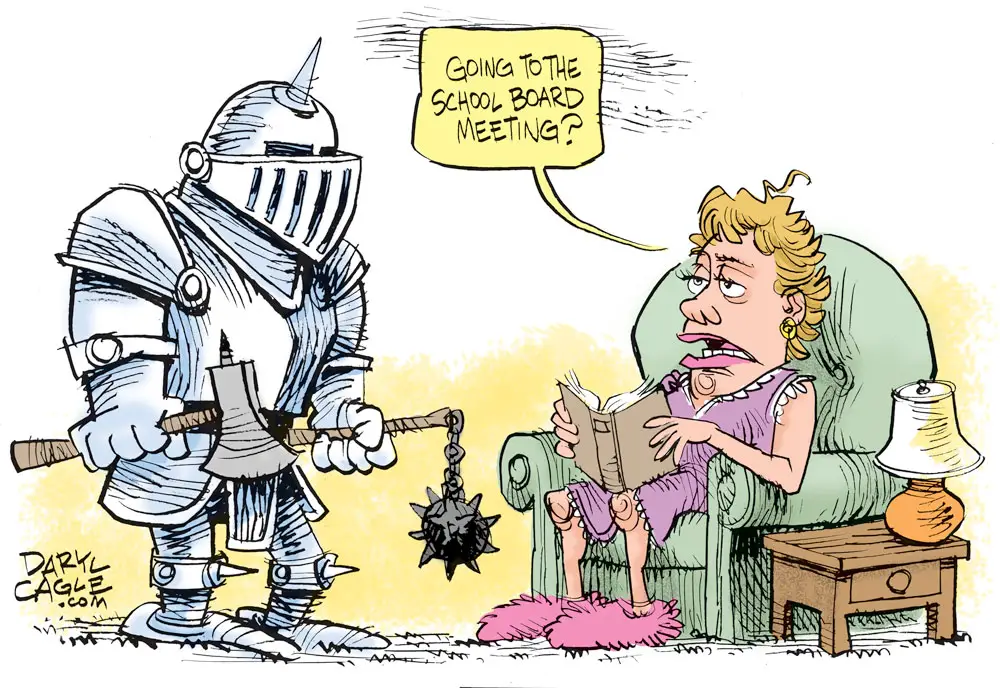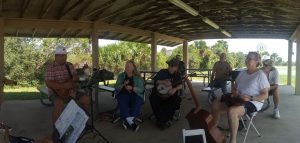
Today at the Editor’s glance: In court: The trial of Keith Johansen on a first degree murder charge enters its third day in Courtroom 401 at the Flagler County courthouse. The trial is being broadcast by CourtTV. Johansen is accused to shooting and killing his wife, Brandi Celenza, at their home on April 7, 2018. He contends it was a suicide. He faces up to life in prison without parole if convicted. The trial of Deviaun Antriel Toler on a first-degree felony charge of aggravated child abuse and two other charges also begins its third day with opening arguments at 9 a.m. in Courtroom 301. That trial is not on CourtTV. Toler is accused of having “knowingly” abused his 20-month-old son by using a washcloth dipped in boiling water, causing burns from the boy’s right shoulder “down the entirety of his right arm,” causing permanent disfigurement, according to the charges. The alleged burns were not treated. Toler also faces an aggravated abuse charge for allegedly spanking his child with a belt and using a tree branch to do so, causing “numerous scarred and open lacerations” and permanent disfigurement. The child was cared for at Wolfson Children’s Hospital in Jacksonville from Feb. 15 through March 7, 2018.
See:
- ‘This Is Not a Jury of My Peers,’ Man on Trial Over Child Abuse Charges Objects Moments Before Jurors Are Seated
- Jury Seated in Keith Johansen Trial, With Key Ruling on Admissibility of Incendiary Video Evidence Still Pending
- 2 High-Profile Trials, in Killing of Brandi Celenza and Alleged Disfigurement of a Child, Are Set for Same Week
- Keith Johansen’s Defense Wants to Keep Out Evidence of His Racist and Sadistic Threats Before Shooting Death of Wife Brandi Celenza
- Judge Sets Stern Ground Rules Ahead of Keith Johansen Murder Trial in Shooting Death of Brandi Celenza
The Flagler Beach Ad Hoc Committee appointed by the City Commission to study the feasibility of continuing July 4 fireworks, and the event’s effect on local businesses, meets at 9 a.m. at City Hall. For background, see “Flagler Beach Appoints Committee to Rethink July 4 Fireworks While Aiming for a Show on New Year’s Eve Too.” Sounds New XXVIII, First Glimpse: A Stetson student composer showcase at 7:30 p.m.. Lee Chapel in Elizabeth Hall, 421 N. Woodland Blvd., DeLand. Admission: Free. For more details, see the School of Music’s concert website.
FacebookTwitterEmailShare
The University of Florida is conducting an on-line survey on behalf of the Florida Department of Environmental Protection to learn more about the use of disposable plastic bags, auxiliary materials and wrappings by Florida residents. The study’s principal investigator is Dr. Tim Townsend from UF and the Sustainable Materials Management Research Laboratory. The survey will be administered on-line using Qualtrics from mid-September 2021 until October 31st, 2021. If you are able to participate in this very important, please visit this link below. Survey link: https://faculty.eng.ufl.edu/timothy-townsend/survey/ … This survey is available to all Florida residents and if you have any questions, please contact Ms. Ashley Ricketts via e-mail at [email protected].
![]()
The Live Calendar is a compendium of local and regional political, civic and cultural events. You can input your own calendar events directly onto the site as you wish them to appear (pending approval of course). To include your event in the Live Calendar, please fill out this form.
January 2026
Flagler Beach United Methodist Church Food Pantry
Flagler County Drug Court Convenes
Model Yacht Club Races at the Pond in Palm Coast’s Town Center
Palm Coast Beautification and Environmental Advisory Committee
Flagler Beach City Commission Meeting
Free For All Fridays With Host David Ayres on WNZF
Scenic A1A Pride Meeting
Friday Blue Forum
Acoustic Jam Circle At The Community Center In The Hammock
For the full calendar, go here.

“She was wondering what had become of her life; every day she had sought something great was going to happen, and it was all straying from one terrible disappointment to another. Here in the lamplight sat Dennis and the cats, beyond in the darkness and snow lay Winston and New York and Boston, and beyond that were far off places full of life and gayety she’d never seen nor even heard of, and beyond everything like a green field with morning sun on it lay youth and Ireland as if they were something she had dreamed, or made up in a story. Ah, what was there to remember, or to look forward to now? Without thinking at all, she leaned over and put her head on Dennis’s knee. “Whyever,” she asked him, in an ordinary voice, “did ye marry a woman like me?”
–From Katherine Ann Porter’s story, “The Cracked Looking-Glass” (1932).
![]()






































Ray W. says
The remembrances of “youth and Ireland.”
Today, psychologists use concepts like the V-curve of happiness to explain the woman’s wonder at how life turned out the way it had, cats and all. Study after study reveals that people report the highest levels of happiness during their early years of adulthood and during their later years in life, with the lowest levels of reported happiness occurring in one’s late 30’s and early 40’s. Hence, the “V-curve of happiness.” Psychologists suspect this occurs because young adults still look forward to travels to Winston and New York and Boston and senior citizens have accepted the many happy memories they have accumulated during a long life. But the middle-aged, still paying off student loans, struggling to pay their children’s college tuition, fighting traffic on a long-commute to a job they hate that pays well enough to do the things they feel obligated to provide to their families, report levels of unhappiness that will dissipate as they age through the problems. “Whyever [she asks] did ye ever marry a woman like me?”
I have long wondered why my paternal grandmother was perhaps the most contented person I ever met. Nothing ever seemed to bother her and she seemed eternally happy and pleasant. Born in 1892 into a large family in Concord, NC, that owned a general store, she trained as a young woman in a technical school to manage the store’s finances and married relatively late for the era to an electrician who had lost much of his hearing during WWI. Early in a marriage joining two Scots-Irish descendants, her husband sold his share in a business that sold electrical motors and rebuilt used or damage motors when he would not risk mortgaging the family home to raise enough money to start an electric company. The two former partners went on to create Greensboro’s electric company, which family lore has it eventually became Duke Energy. I rather suspect that Duke Energy bought out the two former partners’ energy company, but family lore will always be that way. Maybe the two former partners really did build the company into the forerunner of today’s energy giant? My paternal grandfather became a postman. The grandparents raised four children who all had successful lives. My grandmother lived in the same home and attended the same church for nearly 60 years. Knowing of a seven year waiting list to get into the senior living facility run by the region’s Methodist churches, at 87 she sold her home and moved into an apartment for two years until a slot opened. She never learned to drive a car. She walked a mile every day, even at age 94, even when it was snowing. When my father and his two brothers, all combat airmen who became used to readily available hot water for showering at their air bases, returned from WWII, they confronted their father and persuaded him to buy a hot water heater, so Grandma Ruth finally got running hot water at the age of 54. She believed in fresh air, so when I visited with all my siblings we slept in bedrooms with open windows no matter how cold it was outside and inside. Yes, I went to sleep on cold North Carolina nights with a cloth-wrapped brick heated in the oven at my feet. She believed that peanut butter, banana and mayonnaise sandwiches provided all the nutritional needs of a growing boy and every time we left her home to come back to Florida we had wax-paper wrapped sandwiches. Somehow, I just don’t enjoy them as much today as I did then. Every night, she would tell us stories as she let her hair down out of the bun and brushed it 100 times. And, she was eternally content. Nary a single drop of liquor touched her lips. She once told me when I visited her in the Methodist home that when she sold the house, she cleared out the cabinets that lined the kitchen ceiling. At under five feet in height on her best day, it took a ladder for her to reach the cabinets. She found two unopened liquor bottles, probably from before my grandfather’s death in 1958. She reasoned that he must have received them as Christmas presents from postal customers, and she advised that she wrapped them in brown paper, placed them at the bottom of a garbage bag and put the bag at the bottom of the trash can, so that no one would know that liquor had ever been in her home. My father said he never once saw his father touch a drop of alcohol. My father also said the closest his father would ever come to cursing was to say: “John Brown it.” My grandmother never raised her voice, yet my father said if she ever softly said “Robert Warren”, my grandfather would immediately stop whatever he was doing and answer, “Yes, mother?” and do whatever she asked. That was all it took to solve life’s immediate problems. When my father returned from the war, all combat veterans received a legislative bonus of $20 per week for 52 weeks. My father said combat veterans called it “rocking chair money” and claimed they belonged to the “52/20 Club.” One day, while on the porch, Grandma Ruth asked my father to walk to the corner store and get a loaf of bread for dinner. He pulled out a $20 bill and told her to keep her money; he would buy it. She suspiciously asked him where he got $20. He told her it was his rocking chair money and explained where it came from. She intoned in her soft voice that it sounded like welfare to her and that none of her children would ever live in her home if they were on welfare. He got a job digging ditches for 65 cents an hour and stopped collecting the rocking chair money.
And she was the most content person I have ever met. Satisfied in her marriage, in her family, in her church, in her community, in her life. I am repeatedly amazed when I read of so-called conservatives announcing that Democrats need to be beheaded. It was reported very recently that an audience member as a so-called conservative rally asked a presenter how many elections are going to be stolen before people like him start killing people. So-called conservatives stand on street corners in Flagler Beach accosting random drivers with vulgar displays and behavior. Discontent based on misinformation rules the land. People lost in the maze of deceit are beginning to think not only that this is how life is, but that this is how life should be. One might not be wrong in thinking we currently occupy the bottom of the societal V-curve, embracing the long lost past with a soft caress, yet not knowing what the future will bring.
Whyever, she asked, resting her head on her rifle stock, did ye ever vote to ratify the Constitution.